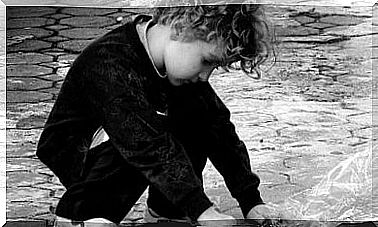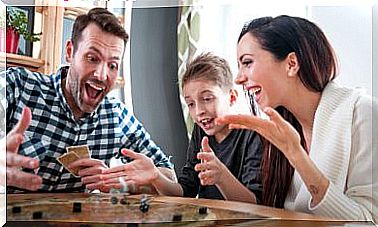How To Act When My Son Challenges Me?

Perhaps you have ever felt bad when your child takes the opposite position to what you just said, it is likely that you feel that he is challenging you. Many children struggle with authority and have trouble following limits or rules. It seems that they want to disrespect others, constantly opposing them or wanting to impose their will.
When a child challenges you it can be difficult to identify . If your child seems to be following the rules at first but then does something else, it may feel like a form of challenge. When an adult is frustrated by children’s responses or actions, they are sometimes not sure how to respond.
Why a child defies
Often in the adult world, we consider that the reason children challenge is to get away with nothing else, but personality can play an important role. There are people who hate rules or authority, it may also be that there are anxiety, disorders or other conditions that can contribute to a child defying.
In some cases, why a child behaves in a certain way may never be determined. Adults spend a lot of time trying to identify triggers for a child’s defiant attitude. There can be multiple factors such as a limit or norm with which they do not agree, feeling jealous, being uncomfortable, having an emotional problem … all these are factors that can contribute to their challenging behavior.

It is necessary to identify the triggers to educate and support your child so that he can change his behavior. As a parent, it is your duty to prepare your children for life in the real world. If you have a child who constantly challenges you, you should educate him so that he can have a positive attitude towards life, without feeling that it is going against him, but that he is in control of his life without having to refuse to comply with the rules.
How to act when my child challenges me
If you feel that your child challenges you, take note of these tips to act without losing your nerves, remember that your child wants to show his identity but you will always be his best example to follow and who he will respect depending on the type of reaction you have in situations difficult.
Don’t fall into the trap of excuses
When there is a problem with your child, stay focused on the issue and your child’s behavior, as well as the consequences that may arise. For example, if your child tells you that he does not plan to do his homework because he has forgotten to write down his homework, you can tell him that his teacher will give him a bad grade and that if he does not do his homework there will be negative consequences because it is his responsibility – he can ask the task to a friend -. Your child will be the one who decides to do things right or wrong with the positive or negative consequences that one thing or another will bring.
Beware of emotional traps
It’s easy to get caught up in the excitement of your child’s challenge. It is an annoying feeling that makes you angry and this can make you act in the wrong way. Divert attention from the topic at hand and don’t personalize what your child says or does. Think that he needs you to redirect his challenging behavior and that he needs your guidance in order to learn to be a successful person in the future.

Teach your child to think
Children must learn to think, but on the way they challenge authority. They don’t take enough time to think about their actions through the potentiating consequences that can occur based on their behavior. You need to teach him to think about his decisions and the consequences that may arise. One way is to create a pros and cons list and then make a decision about the best decision to make.
It is never too early to start teaching a child to evaluate situations. So if he says a phrase like ‘I’m not going to study for the exam’ again, instead of getting angry, it’s better to ask him questions like: ‘What could happen if you choose not to study?’ If he tells you that nothing will happen, try to stay calm and ask him other important questions such as: ‘Could you have a low grade or even fail the exam? What can happen if you fail because you have not made an effort? ‘ The questions are not intended to ask questions, but to teach children to think before reacting.









